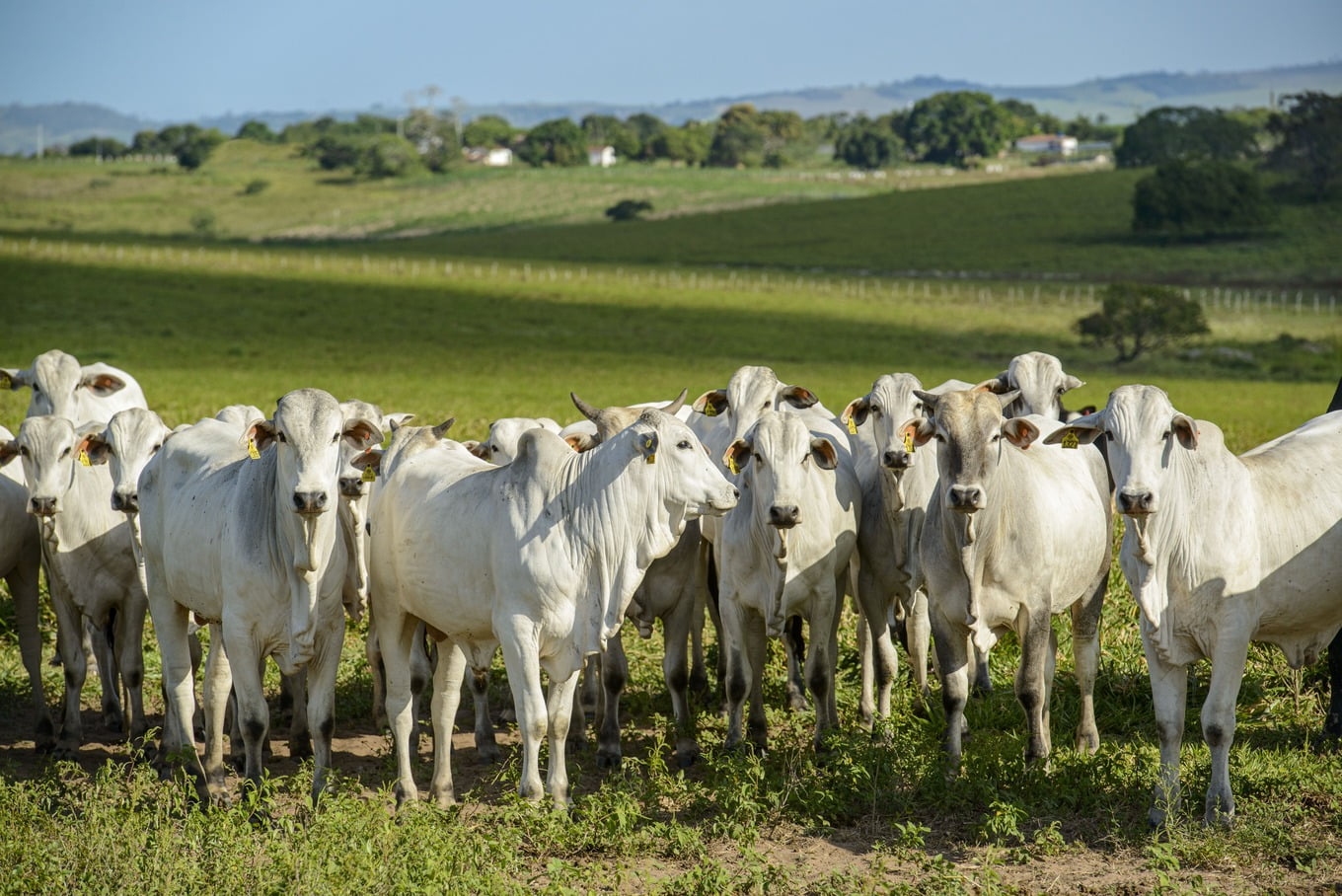One of the main concerns of every cattle farmer or farm manager is preventing diseases in their herd. That’s why it’s important to keep the bovine vaccine calendar up to date.
Vaccination, along with proper management, ensures peace of mind for the producer, as well as health and well-being for the herd.
Being aware of this importance, stay up-to-date on the bovine vaccination calendar and on some diseases that can affect animals without proper prevention.
Continue reading!
Learn about clostridial diseases and the vaccine recommended for their prevention
The bovine vaccination calendar includes protection against clostridial diseases, which have a high incidence of lethality in the country’s cattle herd. Vaccination is one of the necessary measures for the control and prevention of these diseases.
O que são clostridioses?
Clostridial diseases are a group of illnesses caused by bacteria of the genus Clostridium sp., which affect ruminants and are among the leading causes of death in these animals. Outbreaks are common, although isolated cases can also occur.
The clostridial diseases that normally affect herds are:
Botulism C and D Types
Botulism, caused by the production of toxins from Clostridium botulinum type C and D, is one of the most common clostridial diseases in the herd. It occurs due to lack of sanitary management, nutritional deficiency, and ingestion of contaminated water and food.
Also known in Brazil as “cow-down disease,” Botulism affects both beef and dairy cattle, causing significant economic losses for both.
Symptomatic Carbuncle
Also known as “Blackleg,” Symptomatic Carbuncle is an infectious disease caused by the bacteria Clostridium chauvoei, which is difficult to treat and potentially deadly, causing the animal to die very quickly. This disease is characterized by severe toxemia and muscular necrosis.
Gas Gangrene
Also known as Edema Maligno, it is a type of infection that causes necrosis in the soft tissues of animals. It is caused, most of the time, by Clostridium septicum and C. sordellii.
This disease has a rapid course, thus a high mortality rate.
Enterotoxemia
It is an acute, non-contagious infection caused by the toxins of the Clostridium perfringens B, C, and D bacteria that cause gastrointestinal disorders, nervous symptoms, and sudden death. It affects animals of all ages (with a predominance in younger animals).
Sudden death
Sudden death is caused by the Clostridium novyi bacteria. The progression of this clostridial infection is very rapid, in a few hours the animal can die without visible causes.
This is a summary of the main clostridial infections, which need to be known in order to be combated through prevention.
There are other diseases that can affect cattle. Therefore, it is important to keep the vaccination schedule up to date.
The vaccine that prevents these clostridial infections is the polyvalent vaccine against clostridial infections.
Starvac is the polyvalent vaccine indicated for protection against bovine clostridial infections and offers ease of management by protecting the herd against more than one disease, as well as the possibility of reducing the number of vaccinations throughout the animals’ lives.
Another great advantage of the StarVac vaccine is the variety of presentations, with bottles of 10, 20, and 50 doses (or 50ml, 100ml, and 250ml), to meet the demands of small to large producers.
Frequently Asked Questions about Cattle Vaccines
Do bovine vaccines cure diseases?
Bovine vaccines do not cure animals from the illnesses that affect them. They protect and act in the prophylaxis of such diseases. Precisely because of this, it is essential that the vaccination schedule is strictly followed.
Are all vaccines mandatory?
No, not all vaccines are mandatory. However, waiting to treat the herd when diseases arise can be much more expensive than preventing them with periodic animal vaccination.
And there’s more: despite not being mandatory, some vaccines, such as clostridial vaccines, are essential and should be part of your property’s vaccination schedule.
What happens if you don’t vaccinate?
When not prevented, diseases can lead the animal to death. If they are contagious, they can lead herds and more herds to death. This means great losses to the owner, such as appointments, veterinary procedures, and medications.
In addition, it also compromises production and the entire product distribution chain. Unvaccinated animals, the loss is doubled!
Como é o calendário de vacinas bovinas para a prevenção das clostridioses?
The sanitary schedule changes from region to region, and each property may have a customized schedule that meets the respective requirements and needs of each one. Therefore, a specific model made by Labovet follows:
There are different properties and each one has a production line. It is important that the schedule meets the needs of all animals on the property.
Para finalizar, não esqueça: a Starvac é a vacina para prevenir e proteger os rebanhos das clostridioses.
We hope this information has been useful. Enjoy and follow other content on our blog!




